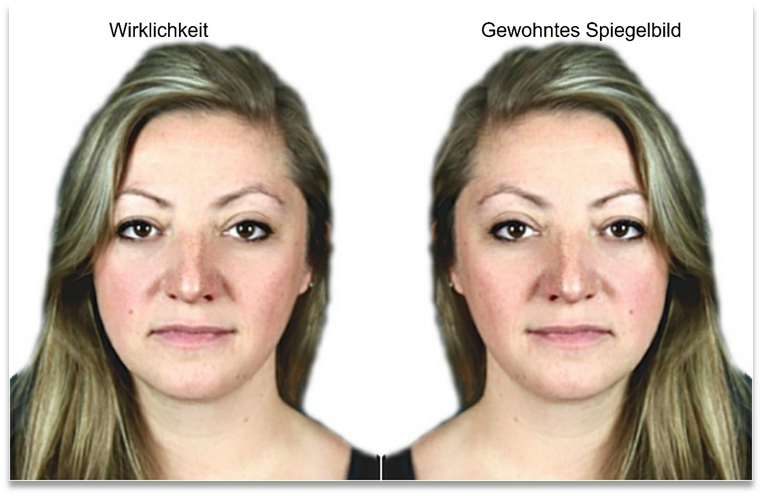"I'm so unphotogenic!" "Oh nonsense." Hand on heart - do you recognize yourself in this situation? This is not by chance, because usually not only does our modesty speak from us in this, but we actually usually don't like ourselves that much when taking pictures or photos. This is no imagination, but this situation is usually due to at least two psychological effects.
Mere Exposure Effect
The "not liking to be photographed" is not based on pronounced self-criticism, but on a psychological effect called "mere-exposure". According to this, people react particularly positively to things they see frequently. Since we see ourselves most often in the mirror, this is the image that is familiar to us and that we associate most strongly with ourselves and our values. As a result, we are accustomed to asymmetrical idiosyncrasies, such as slightly uneven eyes, the parting of our sides, or a birthmark. So the more or more often we perceive a thing, the more positively we evaluate it. The mere-exposure effect is also used, among other things, in songs on the radio or in advertising.

Our brain loves symmetries
We see ourselves much more often in the mirror than in photos, we have already noticed that. We know our small asymmetries, so we no longer notice them. In photos or moving images, on the other hand, we see ourselves as other people see us. For us, however, this is "mirror-inverted". This means that we not only suddenly see our small imperfections on the other side, but they even appear twice as crooked to us - thus even unattractive to ourselves, in contrast to people who are just getting to know us. For example, if our nose is curved by 1 mm to the left in our mirror image, which we know, the 1 mm curvature to the right in the photo is shifted for us by 2 mm to the familiar sight.
